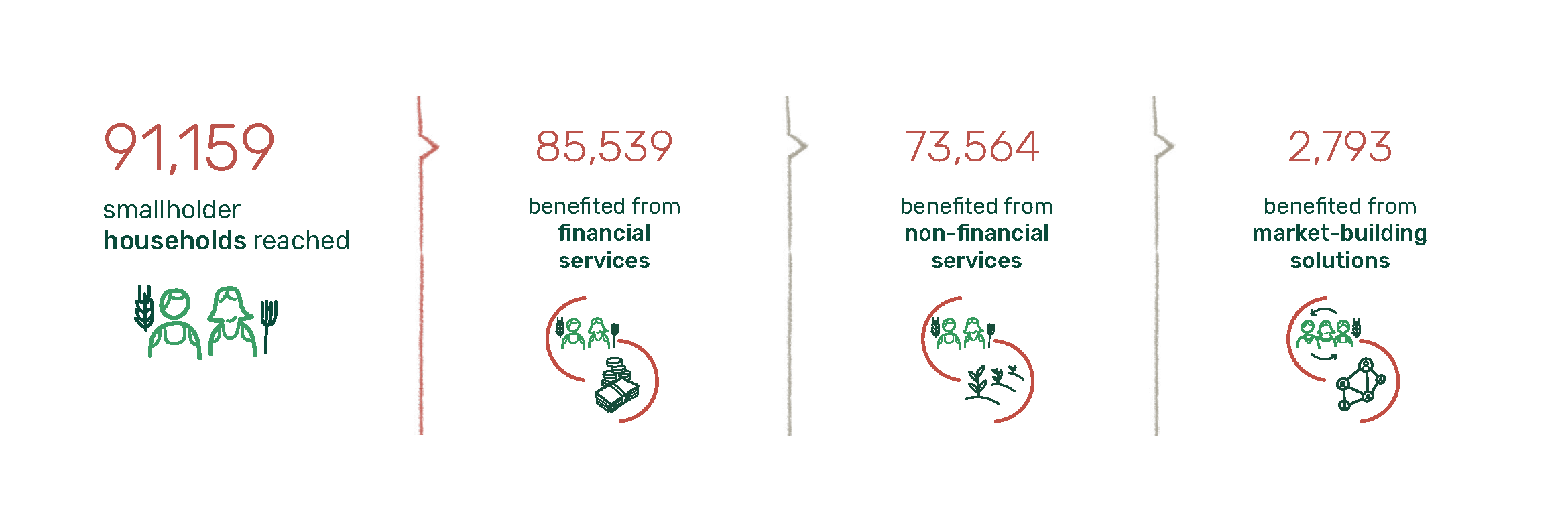SSNUP annual report 2022

SSNUP coordinator ADA has published the 2022 annual report which offers a detailed overview of the various projects along with aggregated information at programme level.
Smallholder households supported by SSNUP
Notably, the report contains precise data on the smallholder households reached since the launch in 2020:

In total, over 91,000 smallholder households benefited from SSNUP support (34% reached through women). Most smallholders benefited from financial services (over 85,000), while almost 74,000 benefited from non-financial services and almost 3,000 were provided with market-building solutions.
Financial services
The financial services were mainly provided in the form of index-based insurance products based on weather indices as opposed to individual claims assessments to compensate farmers for crop failures following extreme weather events. This is an efficient way of increasing the resilience of smallholders against climate hazards.
In addition, over 15,000 smallholders indirectly benefited from loans granted to their cooperatives such as working capital loans to support production activities and contract farming loans to secure market access.
For example, an Oikocredit project in Cambodia aims to improve the capacity and investment readiness of farmer cooperatives by supporting a microfinance institution to design tailored financial products coupled with a training programme.
Non-financial services
Of the almost 74,000 smallholder households who benefited from non-financial services, 70,000 received financial training to help them understand financial services and use them to their advantage.
Over 2,300 smallholder farmers were trained in best production practices via an online app, model farms and regular training sessions. This not only increased the quantity and quality of their produce, it also increased the farmers’ climate resilience and improved environmental protection thanks to climate-smart practices with integrated pest management and access to weather forecasts.
In addition, over 1,100 farmers obtained Fairtrade or Rainforest Alliance certifications to increase the quantity and quality of their produce and to improve their market access.
For example, SIDI supported a processor of organic cashew nuts in Tanzania in increasing its production capacity while also training smallholders in organic farming techniques.
Market-building solutions
The 2,700 smallholder households who benefited from market-building solutions mainly benefited from improved links to other agricultural value chain actors via a digital platform which resulted in improved access to inputs, warehouse services and buyers. Some producers also indirectly benefited from processors’ improved access to markets thanks to upgraded management information systems.
In addition, 86 producers received advanced payments from their cooperatives which not only helped to cover production costs outside the harvest season but also facilitated their access to basic services such as education and healthcare for their families. This not only improved their living conditions but also increased their loyalty towards the cooperative which resulted in a win-win situation as the cooperatives were able to increase the percentage of the harvest sold to them by the farmers, thereby strengthening the value chain.